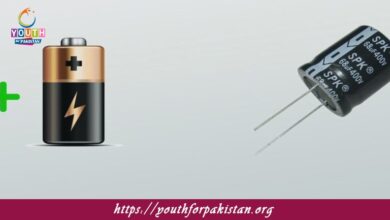Law Of Conservation Of Momentum MDCAT MCQs with Answers

Welcome to the Law Of Conservation Of Momentum MDCAT MCQs with Answers. In this post, we have shared Law Of Conservation Of Momentum Multiple Choice Questions and Answers for PMC MDCAT 2024. Each question in MDCAT Physics offers a chance to enhance your knowledge regarding Law Of Conservation Of Momentum MCQs in this MDCAT Online Test.
Law Of Conservation Of Momentum MDCAT MCQs Test Preparations
The Law of Conservation of Momentum states that in a closed system, if no external forces act, the total momentum:
a) Increases
b) Decreases
c) Remains constant
d) Becomes zero
In a collision between two objects, the total momentum before and after the collision:
a) Is always different
b) Is conserved
c) Depends on the external force
d) Is zero
In an isolated system, if one object gains momentum, the other object must:
a) Lose an equal amount of momentum
b) Gain an equal amount of momentum
c) Have no change in momentum
d) Change its mass
When two objects collide and stick together, the collision is:
a) Perfectly elastic
b) Perfectly inelastic
c) Partially elastic
d) Non-collisional
A rocket expelling gases in space demonstrates the conservation of:
a) Energy
b) Mass
c) Momentum
d) Temperature
If two ice skaters push off from each other, their total momentum:
a) Increases
b) Decreases
c) Remains the same
d) Becomes zero
In a perfectly elastic collision, which of the following quantities is conserved?
a) Kinetic energy only
b) Momentum only
c) Both kinetic energy and momentum
d) Neither kinetic energy nor momentum
The Law of Conservation of Momentum is derived from:
a) Newton’s First Law
b) Newton’s Second Law
c) Newton’s Third Law
d) The Principle of Energy Conservation
In a two-body collision where no external forces are present, the momentum of each body:
a) Is conserved individually
b) Changes proportionally
c) Remains unchanged
d) Is not conserved
During a collision between a car and a truck, the total momentum before the collision:
a) Is less than the total momentum after
b) Is greater than the total momentum after
c) Equals the total momentum after
d) Depends on the road conditions
In a closed system, if one particle gains momentum, the system’s total momentum:
a) Increases
b) Decreases
c) Remains constant
d) Can be zero
When two cars collide and the collision is elastic, the total kinetic energy and momentum:
a) Are both conserved
b) Are both lost
c) Kinetic energy is conserved but momentum is not
d) Momentum is conserved but kinetic energy is not
In a system of particles, if no net external force acts, the total momentum:
a) Increases with time
b) Decreases with time
c) Remains constant
d) Becomes unpredictable
When a bullet is fired from a gun, the law of conservation of momentum implies that:
a) The bullet’s momentum is conserved
b) The gun’s momentum changes
c) The total momentum of the bullet and gun is conserved
d) The total momentum is not conserved
In a frictionless environment, if two objects collide, their combined momentum:
a) Will be lost
b) Will increase
c) Will remain constant
d) Will become zero
In an explosion, if a stationary object breaks into pieces, the total momentum of the system:
a) Increases
b) Decreases
c) Remains constant
d) Becomes zero
For an isolated system of two colliding objects, the change in momentum of one object:
a) Is equal and opposite to the change in momentum of the other
b) Is equal but in the same direction as the other
c) Is greater than the change in momentum of the other
d) Is less than the change in momentum of the other
In an inelastic collision, total momentum is conserved, but:
a) Kinetic energy is not conserved
b) Kinetic energy is conserved
c) Both kinetic energy and momentum are not conserved
d) Neither kinetic energy nor momentum are affected
When two objects collide and stick together, the final momentum of the combined mass is equal to:
a) The sum of their individual momenta before the collision
b) The product of their masses and velocities
c) The difference between their momenta
d) Zero
If a moving object breaks apart into two parts, the total momentum of the system:
a) Remains constant
b) Increases
c) Decreases
d) Becomes zero
When a skater pushes off another skater, the total momentum of the system:
a) Increases
b) Decreases
c) Remains unchanged
d) Is zero
In a collision between two vehicles, the vehicle with the larger mass:
a) Will experience a larger momentum change
b) Will experience a smaller momentum change
c) Will experience no change in momentum
d) Will experience greater kinetic energy loss
The conservation of momentum principle applies to:
a) Only elastic collisions
b) Only inelastic collisions
c) All types of collisions
d) No collisions
When two carts collide on a frictionless track and stick together, their final momentum is:
a) Less than the total initial momentum
b) Greater than the total initial momentum
c) Equal to the total initial momentum
d) Zero
A car and a truck collide. The truck has a larger mass. According to the Law of Conservation of Momentum, the momentum change of the truck:
a) Is smaller than the car’s momentum change
b) Is larger than the car’s momentum change
c) Is the same as the car’s momentum change
d) Is zero
If two particles collide and no external forces act, their total momentum:
a) Becomes unpredictable
b) Increases with time
c) Decreases with time
d) Remains constant
A 10 kg object moving at 5 m/s collides with a 5 kg object moving at 10 m/s. The total momentum before the collision is:
a) 50 kg·m/s
b) 75 kg·m/s
c) 100 kg·m/s
d) 150 kg·m/s
When two objects explode and move apart, the momentum of each piece is:
a) Greater than the original momentum
b) Equal to the original momentum
c) Less than the original momentum
d) Zero
During a collision, if the net external force is zero, the momentum of the system:
a) Can change
b) Cannot change
c) Depends on the type of collision
d) Depends on the masses of the objects
In a collision where two objects stick together, the final velocity of the combined mass is:
a) The average of the initial velocities
b) The sum of the initial velocities
c) The difference of the initial velocities
d) Determined by the conservation of momentum
A stationary object explodes into two pieces. The momentum of the two pieces:
a) Is zero
b) Adds up to the initial momentum
c) Is greater than the initial momentum
d) Is less than the initial momentum
In a two-object collision, if one object is initially at rest, the final momentum of the system:
a) Increases
b) Decreases
c) Remains constant
d) Becomes zero
The principle of conservation of momentum applies to:
a) Only mechanical systems
b) Only electrical systems
c) Both mechanical and electrical systems
d) Only fluid systems
If a car and a motorcycle collide and the car is more massive, the momentum of the motorcycle:
a) Will be conserved
b) Will change more than the car’s momentum
c) Will be zero
d) Will be less than the car’s momentum change
The momentum of a system of particles can be calculated by:
a) Summing the individual momenta of all particles
b) Adding the total forces on each particle
c) Calculating the average velocity of the particles
d) Measuring the system’s energy
During a head-on collision, the total momentum of the system:
a) Is not conserved
b) Remains constant
c) Is transferred to external forces
d) Depends on the impact speed
In a collision between two carts, if the total system’s momentum before the collision is 20 kg·m/s, the total momentum after the collision is:
a) Less than 20 kg·m/s
b) Greater than 20 kg·m/s
c) Exactly 20 kg·m/s
d) Zero
For an isolated system, if a force acts on one part of the system, the total momentum:
a) Remains constant
b) Changes based on the force
c) Depends on the direction of the force
d) Is transferred to the surroundings
The principle of conservation of momentum is used to analyze:
a) Chemical reactions
b) Nuclear reactions
c) Collisions and explosions
d) Thermal processes
In an explosion, the sum of the momenta of all fragments:
a) Is zero
b) Is equal to the initial momentum of the system
c) Is always greater than the initial momentum
d) Is always less than the initial momentum
If you are interested to enhance your knowledge regarding Physics, Chemistry, Computer, and Biology please click on the link of each category, you will be redirected to dedicated website for each category.





